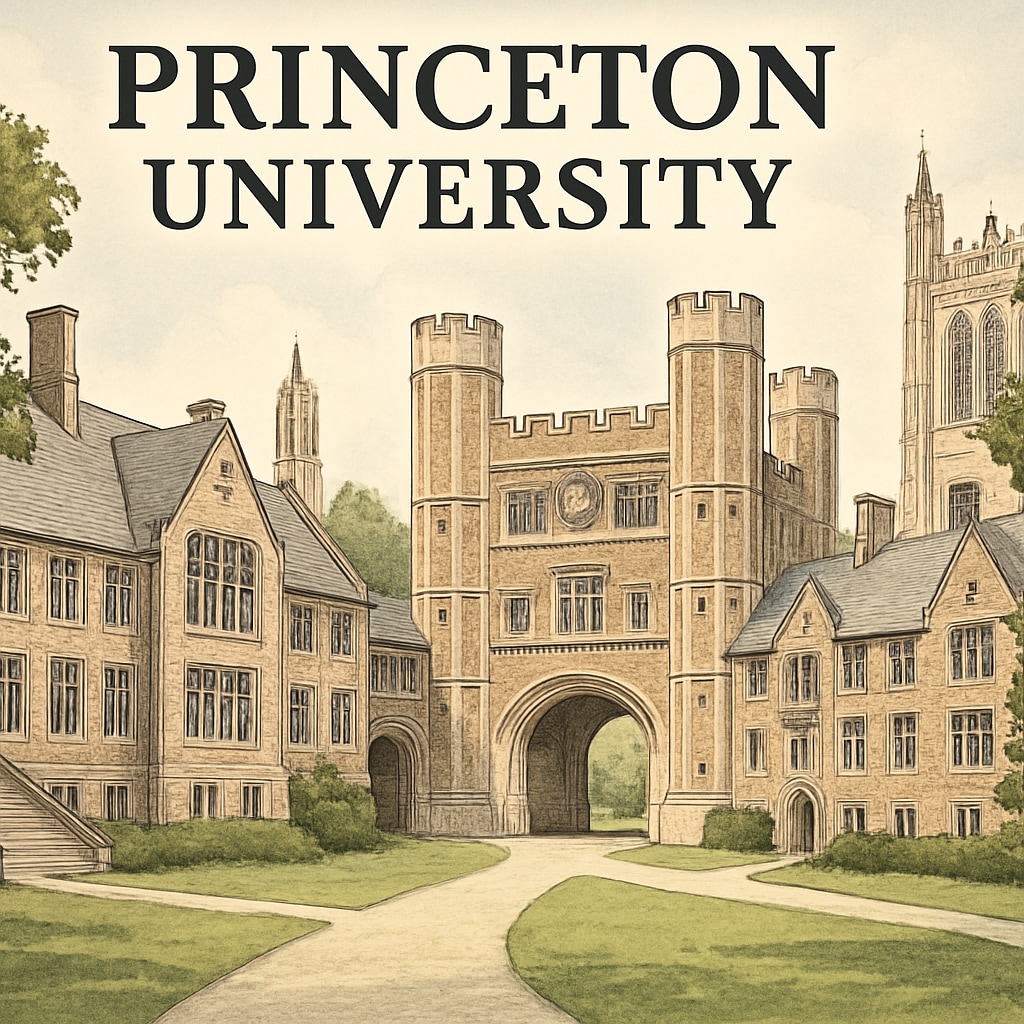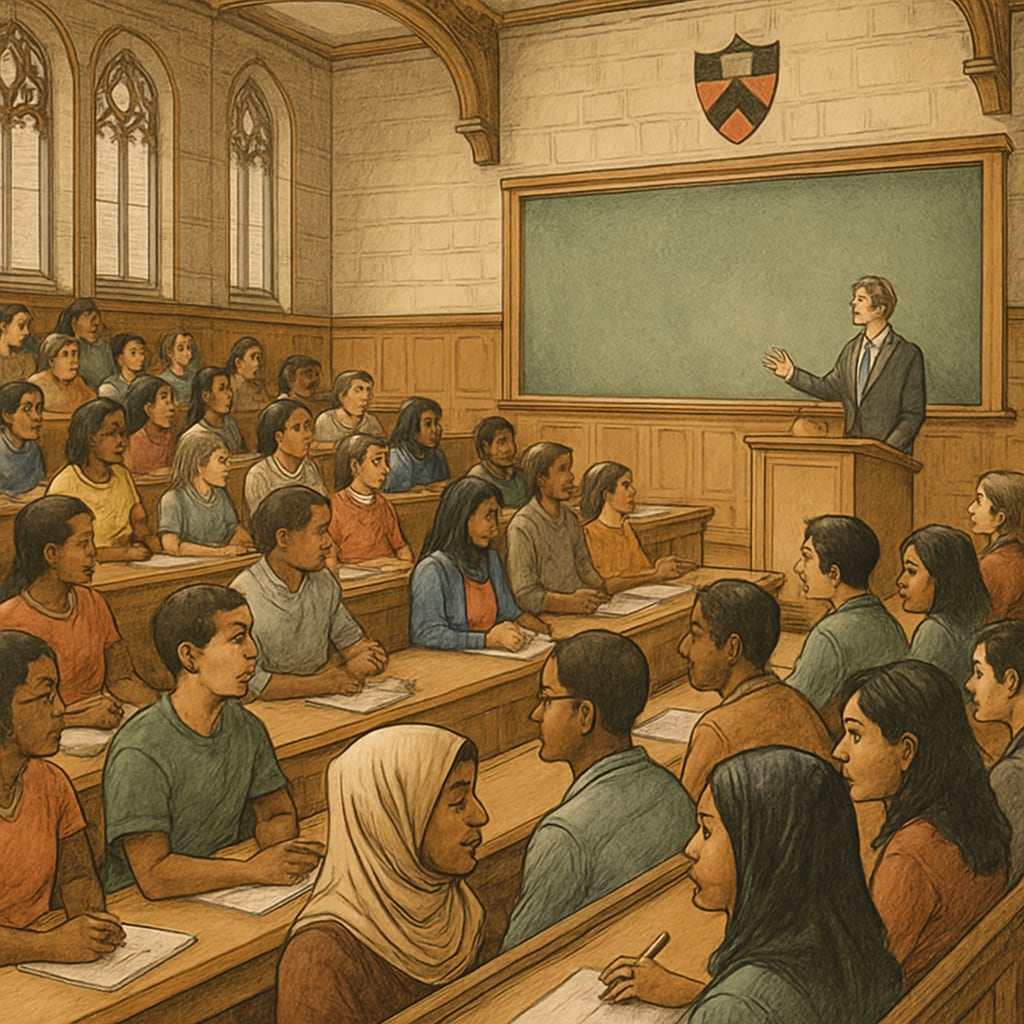The reputation of Princeton and other Ivy League schools has long been considered untouchable, a golden standard in the world of education. Yet, are we overestimating the value these institutions bring to society? For decades, the Ivy League has been synonymous with excellence, opportunity, and prestige. However, as the landscape of education evolves, it’s worth questioning whether this reverence is still deserved. Are we, as a society, overly captivated by the halo of elite education while neglecting its limitations? This article delves into the myths, realities, and the need to reassess the role of institutions like Princeton in shaping modern success.

The Ivy League Mystique: A Legacy of Prestige
The Ivy League, including Princeton, has maintained a reputation as a bastion of intellectual and social elitism for centuries. These schools, often viewed as gateways to success, have historically drawn the brightest minds and wealthiest families. Princeton, for instance, is renowned for its rigorous academics, influential alumni, and idyllic campus. But how much of this reputation is built on tangible outcomes, and how much is rooted in tradition and perception?
The exclusivity of Ivy League schools has undoubtedly fueled their mystique. With acceptance rates often below 10%, being admitted feels like an achievement in itself. However, critics argue that this exclusivity fosters inequality, prioritizing legacy admissions and wealth over broader societal impact. In fact, studies show that Ivy League schools enroll a disproportionately high number of students from affluent families compared to those from low-income backgrounds (Ivy League Criticism on Wikipedia).
Do Princeton and Its Peers Deliver on Their Promise?
While the Ivy League’s reputation is undeniable, the question remains: do these schools deliver outcomes that justify the hype? Princeton boasts numerous Nobel laureates, CEOs, and world leaders among its alumni, suggesting that it is indeed a breeding ground for success. Yet, skeptics point out that correlation does not equal causation. Many students who attend Ivy League schools already possess the social, financial, and intellectual advantages needed to succeed, regardless of where they study.
Moreover, the cost of attending such institutions raises concerns about accessibility and return on investment. For example, the annual cost of Princeton, including tuition and living expenses, can exceed $80,000. While financial aid programs exist, they are not always sufficient to bridge the gap for middle-income families. This raises the question: is the Ivy League truly fostering equal opportunity, or merely perpetuating existing societal divides?

Rethinking the Definition of Success
Perhaps the most significant issue with the glorification of Ivy League schools is the narrow definition of success it promotes. By placing these institutions on a pedestal, we risk undervaluing other paths to achievement. The focus on elite education often overshadows the contributions of state universities, community colleges, and vocational training programs, which serve a much broader and more diverse population.
For instance, graduates from regional universities often excel in fields like healthcare, education, and technology, contributing directly to their communities. Yet, these achievements rarely receive the same level of recognition. As a result, society may overlook the importance of multiple pathways to success, perpetuating the idea that only an Ivy League degree guarantees a bright future.
A Call to Reevaluate Elite Education
It’s time to ask whether our obsession with elite education is truly serving the greater good. While institutions like Princeton undeniably offer exceptional resources and opportunities, they are not the only places where talent and innovation thrive. By broadening our perspective on what constitutes a valuable education, we can create a more inclusive and equitable system.
This does not mean dismissing the achievements of Ivy League schools but rather placing them within a broader context. Success should not be measured solely by the name on a diploma but by the impact an individual makes in their field and community. In a world that increasingly values diversity, creativity, and adaptability, the overemphasis on elite institutions may be becoming outdated.
In conclusion, as we continue to celebrate the accomplishments of Princeton and its Ivy League peers, let’s also recognize the potential of other educational pathways. By doing so, we can redefine success in a way that truly reflects the values of modern society.
Readability guidance: Short paragraphs and lists have been used where possible. Overly complex sentences have been avoided, and transitions such as “however,” “therefore,” and “for example” ensure smooth reading. The tone remains professional yet accessible to a wide audience.


